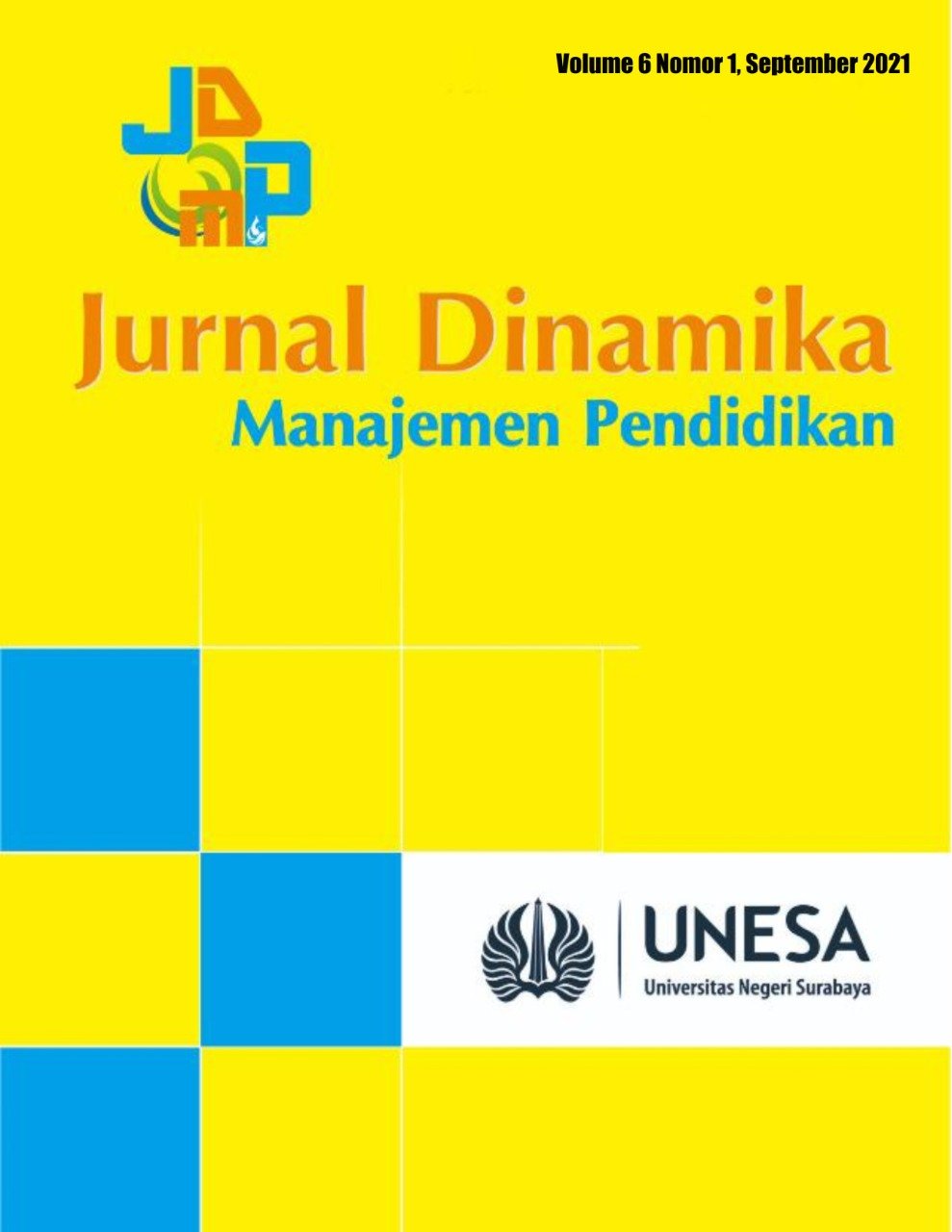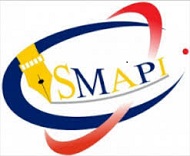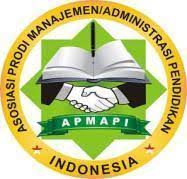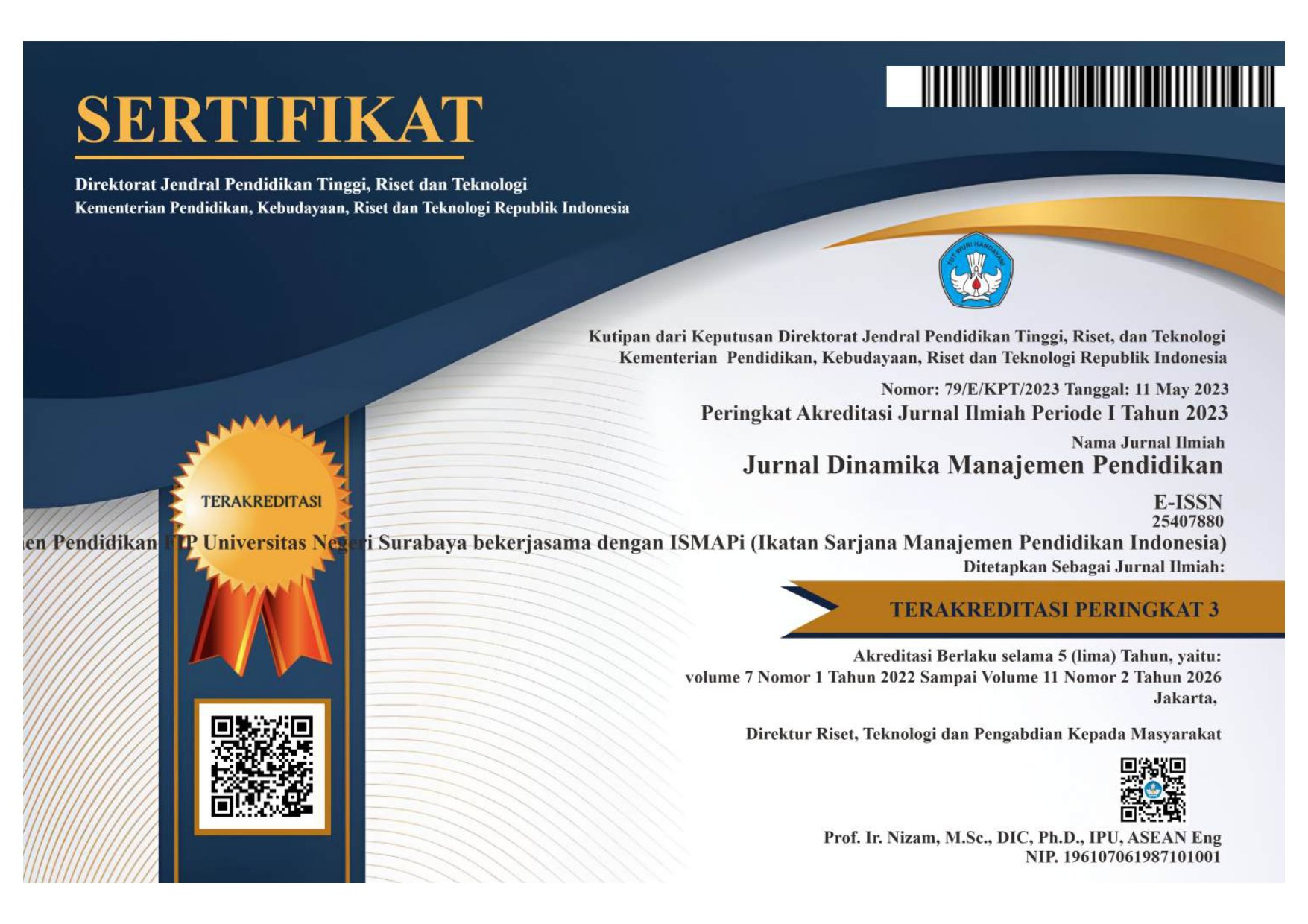Kepemimpinan Transformasional Kepala Sekolah Dalam Pengimplementasian Program Pendidikan Karakter di Era Global
DOI:
https://doi.org/10.26740/jdmp.v6n1.p17-32Keywords:
transformational leadership, principal, implementation of character education, global eraAbstract
This article aims to explain descriptively and critically related to strengthening character values and transformational leadership strategies of principals in strengthening character values in the global era. These two research points are assessed as a school strategy for metamorphosis to change the paradigm of education through revitalization and transformation of educational values. Achieving character education values such as intellectual maturity, strong, and competitive self-character. The method of writing this article is to critically discuss the results of research based on relevant studies. The validity of the data is to find the meaning of the data, based on the depth of fact from the findings of the relevant researchers, and to discuss the appropriateness of the meaning and its relevance to conditions in Indonesia. The study results explain several important points such as; (1) the importance of the role of the principal's transformational leadership in strengthening self-character, such as building a positive and inspirational school culture through the provision of high motivation and achievement; (2) increasing collaboration between teachers and changing teachers' attitudes towards their work in a more positive direction; (3) as a charismatic change agent flexibly of thinking and acting; (4) build teacher confidence; (5) guidance and direction to teachers, staff, and students; (6) acting on the basis of a value system; (7) optimizing intellectual stimulation to deal with complicated and unclear situations in the global era; (8) have new ideas, new ways, new practices in integrating character values in the curriculum, extracurricular and co-curricular activities in schools; (9) the spirit of a model in behavior to be imitated by students through habituation and exemplary practices by teachers in schools.
References
Downloads
Published
How to Cite
Issue
Section
License
Copyright Notice
The copyright of the received article once accepted for publication shall be assigned to the journal as the publisher of the journal. The intended copyright includes the right to publish the article in various forms (including reprints). The journal maintains the publishing rights to the published articles.
The publisher publish and distribute the Article with the copyright notice to the JDMP with the article license CC-BY-SA 4.0.
 Abstract views: 2221
,
Abstract views: 2221
, PDF Downloads: 684
PDF Downloads: 684



















.png)
1.png)







.png)
